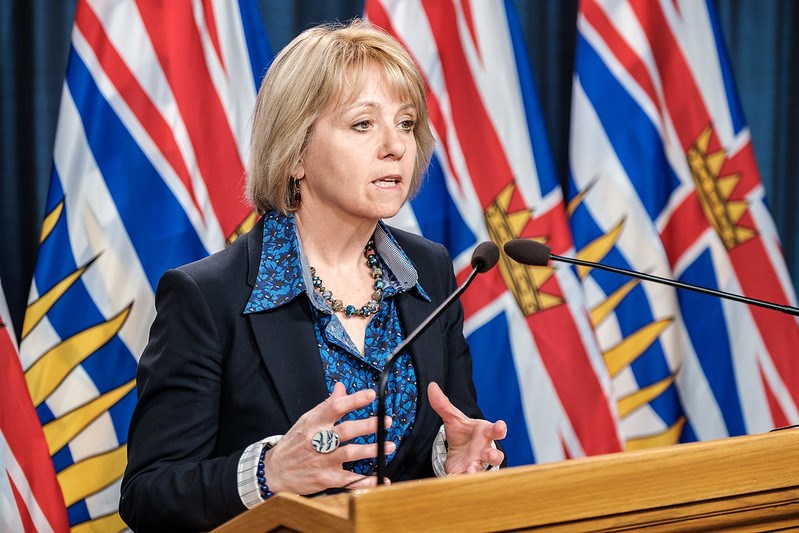B.C. has flattened the curve of COVID-19 cases for about three weeks now, allowing health officials to plan on easing some restrictions as early as next month while warning that others will remain for up to 18 months, until a vaccine is discovered.
“The difference between what could have been and what actually happened here in B.C. is because of the measures that we, as people in B.C., took together — each of us individually and collectively,” provincial health officer Dr. Bonnie Henry said in a briefing on Friday.
Health Minister Adrian Dix said B.C.’s actual case rate and intensive-care-unit admissions have been far below projections based on other jurisdictions, including Italy and China’s Hubei.
Still, Dix said, the work is not done. “We have to continue to flatten the curve. We have to continue to succeed.”
Henry said the focus in coming weeks and months will be determining “just the right amount” of restrictions to prevent a sharp upswing in cases while allowing B.C. to get its health-care system — and society at large — moving again. “That is our dilemma,” she said.
While the first confirmed case of COVID-19 in B.C. was on Jan. 20, most of the current restrictions were gradually imposed starting in mid-March, including a ban on gatherings of more than 50 people, the closing of bars and K-12 schools and the end of dine-in at restaurants.
Federal restrictions were also imposed on non-essential flights in and out of Canada.
“Those were the things that allowed us to bend that curve,” said Henry. “We saw a dramatic decrease in people moving to workplaces, to transit, to retail and recreation facilities, even to groceries and pharmacies.”
As a result, the rate of new infections has slowed, Henry said, which needs to continue “for us to be able to move to the next stage.”
Those awaiting elective surgery had cause for some celebration on Friday, as Dix said planning is underway to reschedule some postponed elective surgeries starting next month — almost 14,000 surgeries had been postponed as of this week.
The trick will be to maintain enough vacant intensive-care-unit and high-acuity beds for hospitalizations for the virus “over the coming weeks and months, and particularly as we go into the fall,” said Henry.
“We don’t know what is going to happen with this virus,” she said. “We don’t know if it’s going to naturally wane away during the summer. We have seen some decreases, certainly, here in B.C. and across Canada, but we don’t yet know if that’s only because of the work that we’re doing, and I think it is, but [we don’t know] whether there’s going to be a period of time where we might get a bit of a reprieve.”
The other unknown is whether it will return as a surge in the fall, she said.
Dix said a higher capacity of critical-care beds and resources will need to be built up for the fall.
Dix and Henry talked about a gradual loosening of restrictions for travel within North America and for how business is conducted. Schools might see staggered hours and seating arrangements, starting with graduating students.
But they stressed physical-distancing measures and staying close to home will remain.
“Our new normal for the coming months, and it may be some time, is going to be modifications of what we are seeing right now,” said Henry.
Dix said there is no chance that any restrictions will be lifted before the end of April, and the pandemic won’t be over until a majority of the world’s population becomes immune to the virus, which won’t happen for some time.
The goal, he said, is to find a healthy new normal for the next 12 or 18 months, one “that keeps us safe, that allows us to resume some of our activities in a safe way, that allows us to socialize in a safe way more with our family and friends.”
Dix said there are those who will argue that restrictions should simply be lifted, but it’s important to find a middle road.
“Whatever actions we take, we know that there is a significant human cost if we get it wrong,” he said.
“This will be a difficult process that is going to involve creativity and imagination and care and adaptation, consistent adaptation, so that we don’t lose the gains we have made.”



